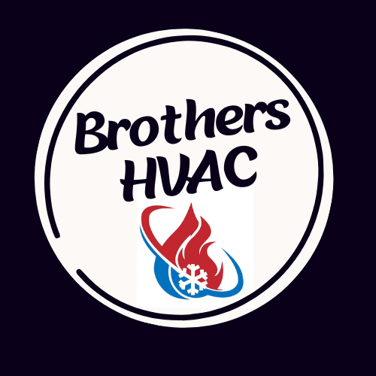Troubleshooting Noisy Air Conditioners: Tips from Brothers HVAC
Contemporary air conditioners are designed to operate quietly, thanks to advanced technologies like two-stage variable heat compressors and sound reduction measures that keep noise levels under 55 decibels. If you own such a unit, you likely seldom consider its noise levels—until it begins to sound louder than usual. When this happens, it's important to pay attention, as it could indicate an issue with your unit.
Why Is My Air Conditioner So Loud?
If you start hearing odd, uncharacteristic noises from your usually quiet air conditioner, don’t ignore them. The problem might be something that a basic tune-up can fix, or it could require major repairs. In some cases, the cost of repairs might even exceed the cost of a new unit. Ignoring unusual noises can lead to more severe damage and costly repairs. It’s best to address these issues promptly.
Common Causes of a Noisy Air Conditioner
1. Age and Wear: Over time, components like fan blades or bearings can wear out, causing noise during operation. If your air conditioner is old or hasn’t been maintained properly, it may be louder than a newer unit.
2. Improper Installation: Incorrect installation can lead to noise issues. Loose parts, improper unit placement, or loose ductwork can increase noise levels.
3. Inadequate Insulation: Poor insulation or insufficient soundproofing in walls, ceilings, or floors can allow noise from the outdoor unit or air ducts to penetrate your living space.
4. Dirty or Clogged Components: Dust, debris, or dirt on fan blades, air filters, or condenser coils can make the unit work harder, resulting in increased noise. Regular cleaning and maintenance can prevent this.
5. Mechanical Problems: Issues like a malfunctioning compressor or a faulty motor can cause excessive noise. These problems may require professional repair or replacement.
6. Ductwork Issues: Loose or damaged ducts can cause air leaks, leading to whistling or hissing sounds. Undersized or improperly designed ductwork can create turbulent airflow and increased noise.
DIY Troubleshooting Steps
You don’t always need to call a professional for AC repairs. If you hear a new noise, try investigating the unit yourself. Many problems have simple DIY solutions:
Inspect for Debris: Tree branches, twigs, leaves, and seed pods can clog air conditioning coils, causing buzzing or pulsing sounds. Remove the top of your air conditioning unit with a screwdriver and check for debris.
Check for Loose Parts: Loose parts, especially when in motion, are usually easy to spot. Tighten any loose screws or components.
Change the Filter: A dirty filter can make your unit work harder, leading to increased noise. Replace the filter regularly.
Clean the Outdoor Unit: Use a hose to spray off any natural debris from the outdoor unit to keep it running smoothly.
When to Call a Professional
If your DIY efforts don’t resolve the issue, it’s time to call a professional. At Brothers HVAC, our experienced technicians can diagnose and fix any noise issues, ensuring your air conditioner operates quietly and efficiently. Don’t let a noisy air conditioner disrupt your comfort—contact us today for expert assistance and reliable service.
